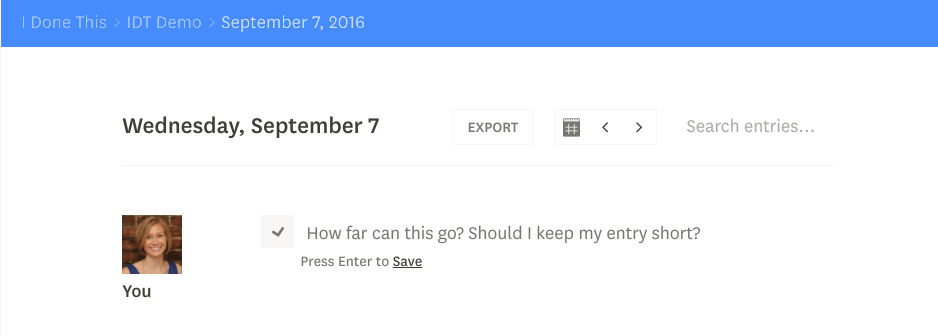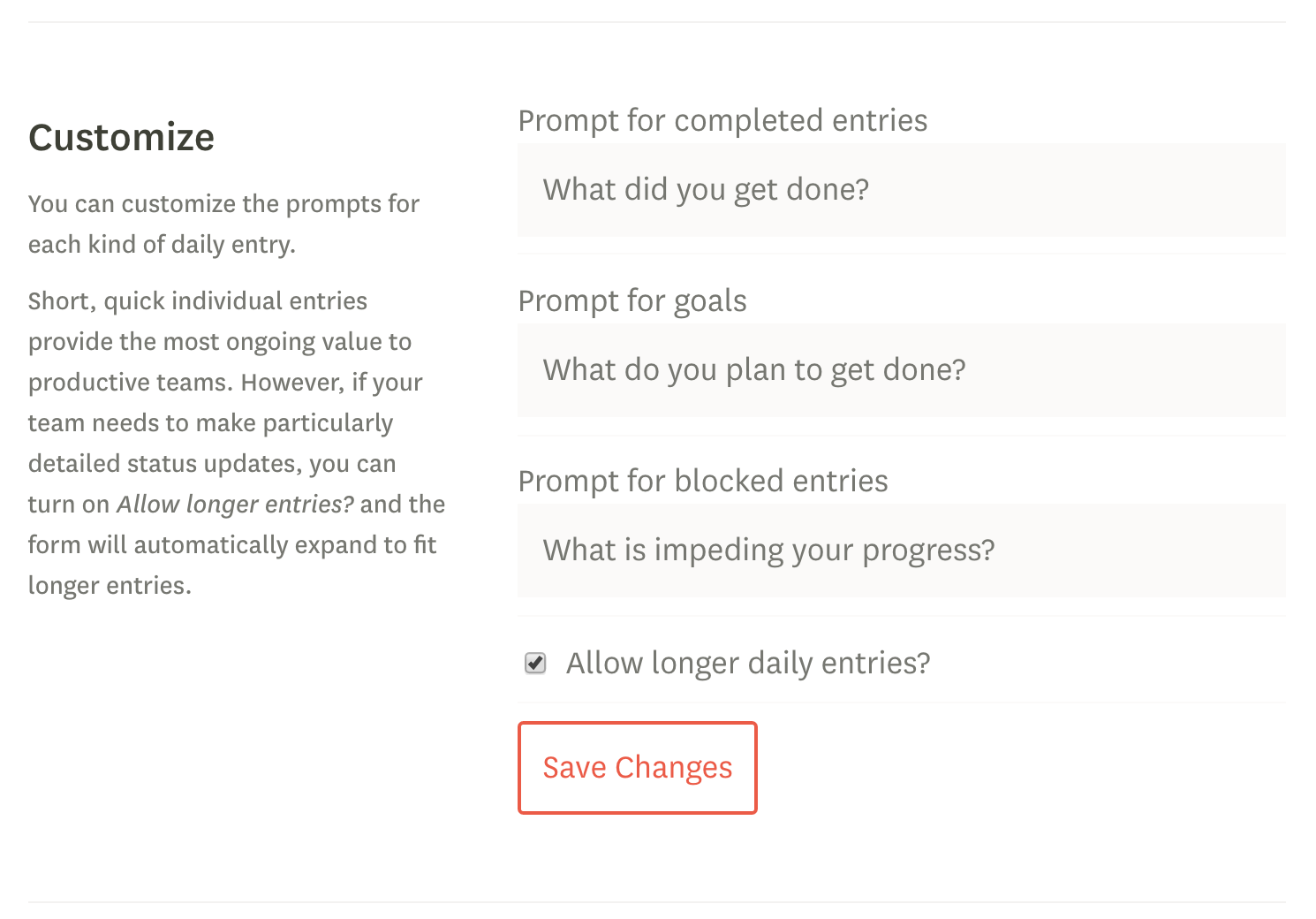The more you write on your “Done List,” the less likely your co-workers are to read what you write. 81% of educated people don’t even read what they see—they skim.
I Done This 2.0 automatically sets the default length of a Done List post at about 12 words. We’ll never limit the amount of words you post, but the default setting encourages you to fit your post on one line, like this:

It’s easy to go back to the original form, which didn’t have a default word count, by checking this box:

But here’s why we think you shouldn’t.
Get a dose of happy
Breaking up longer, wordier items into shorter ones on your Done List can actually make you happier. Marking more items as “done” spikes your level of dopamine, a hormone that causes you to feel satisfied and more motivated. Dopamine also makes you more productive—when we feel its effects, we’re hardwired to try to get another rush by working even harder.
Get your dopamine high by splitting up longer list items into individual, short bullet points. Instead of writing, “Went shopping and looked at coffee machines, got extra desks, re-stocked on office supplies, and bought Halloween candy for trick-or-treaters,” try it like this:
- Looked at coffee machines
- Got extra desks
- Re-stocked on office supplies
- Bought Halloween candy for trick-or-treaters
It’s easier for your co-workers to skim and retain the information they need—and you’ll get that extra dopamine boost.
Balance brevity and clarity
It’s tempting to show off your big vocabulary, but using “$5 words” obstructs even your most intelligent colleagues from understanding what you have to say. (Did you know that emails sent at a third grade level are 36% more likely to get responses than emails sent at a college age level?)
If your co-workers have to Google what “erudite” means, they’ve probably already lost interest. It’s possible to be concise, clear, and intelligent at the same time—all it takes is a few strategies.
Specify, Specify, Specify
A Yale social psychology experiment showed that people are more likely to do something that benefits them when they have the specific knowledge of how to do it. Specificity can call your boss to action, too—the more specific the language on your Done List, the more likely it is that your boss will take steps to eliminate your blockers.
One way to put specificity in your writing is by learning how to identify vague language. Here are some examples:
- Handled: “I handled the coffee machine problem,” vs. “I fixed the broken coffee machine.”
- Stuff: “I wrote stuff for the blog,” vs. “I wrote this week’s blog post.”
- Aspects: “I worked on different aspects of the marketing plan,” vs. “I worked on social media strategy and online outreach.”
- Degree: “I fixed the website code, to a degree,” vs. “I fixed the image settings, but not the color scheme yet.”
The key is to make sure your words are specific enough that they carry the same meaning for everyone. If your department has the power go out once a week, they’d know about “the electricity situation,” but other departments wouldn’t. Calling it “the electricity outages” is a one-word change that clarifies what you’re talking about for everyone.
Don’t Indulge Yourself; Inform Your Co-workers
To-do lists used to be just for you, but now they’re a tool for your whole team. I Done This makes your lists of goals, blockers, and achievements public. You have to remember that your Done List is not just a personal list—it’s meant for communicating.
Here are questions to ask yourself to make sure your colleagues can get as much from your Done Lists as you do:
- Am I being inclusive of everyone? Or am I using technical jargon that only my department can understand?
- Am I including a thorough account of what I did with my day? Am I including a thorough account of my blockers, or what kept me from achieving my goals?
- Am I getting their attention? Did I make my point clearly, or is it muddled in a wall of text?
Writing is a conversation—if you think about what your co-workers need to hear, what you need to say will flow onto the page more naturally.
R-E-S-P-E-C-T
Google’s Project Aristotle research on making the perfect team showed that good teams are effective because they respect each other. Through our Done Lists, we respect the work that we all do every day to make the team succeed. But by writing short posts, we also respect each other’s time.
We’ve given you enough tips that we know you can write concisely, clearly, and confidently, but it’s up to you to implement them. Once you do, you can (briefly) add to your Done List!
P.S. If you liked this article, you should subscribe to our newsletter. We’ll email you a daily blog post with actionable and unconventional advice on how to work better.
